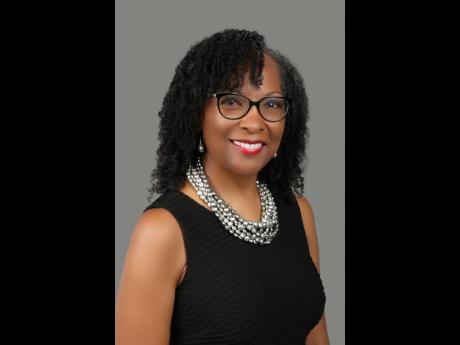Rosalea Hamilton | Does voting give you a say on important issues?
On February 26, Jamaicans will again face the decision of whether to go to the polls to vote in a local government (LG) elections. The majority of eligible voters will not vote. In the last LG elections, only 30 per cent of Jamaicans on the voters’ list turned up to vote. However, according to Don Anderson’s recent polls, about 38 per cent of Jamaicans intend to vote. It is expected that around 60 to 70 per cent of eligible voters will NOT vote. But what will voting mean?
The Electoral Commission of Jamaica’s website states: “Voting gives you a say on important issues that affect you – everything from roads, healthcare, education and taxes.” Really? For those of us who have voted in both local and national elections, do we have a say about how the National Works Agency (NWA) and/or parish councils prioritise the fixing of road in our communities? Do we have a say in the decisions about how much our health professionals should be paid to keep us healthy in comparison to how much our politicians should be paid? Do we have a say in how to improve the schools in our community so that our children will excel to enable them to earn a decent wage and walk away from criminality? And, significantly, do we really have a say in how our tax dollars are being spent in our communities to achieve our community priorities? Will voters really have a say on the important issues of concern to them?
What issues are of concern to voters?
According to the Don Anderson polls (December 2023), 51 per cent of potential voters identified “the issues” as the most important reason they will bother to vote in LG elections. This is significant! Only 38 per cent identified “the party”, “the party leader”, or “the MP or candidate”, and 11 per cent identified “how I will benefit” as the reason for voting. The polls also revealed that the main issue of concern to voters is the need to “create more jobs/job opportunities”. This is noteworthy at a time when the unemployment rate is at an unprecedented low level of 4.5 per cent. Jamaicans are clearly concerned about the quality of available jobs and the liveability of wages. It should be noted that 62 per cent of the employed labour force has no training and 77 per cent are employed in “elementary occupations” and jobs requiring the lowest skill levels (ILO skill levels 1 & 2).
LIVING STANDARDS
About 50 per cent of the issues identified in the poll suggest that the major concern of potential voters is related to their desire to improve living standards: more jobs/job opportunities, personal benefits, infrastructure (road/water/light), change that impact lives positively, policies that impact lives of all, more educational opportunities, and policy to address crime/corruption. It should be further noted that the polls suggest that about 80 per cent of Jamaicans are of the view that the plight of the poorer classes are the same or getting worse. This is also noteworthy in a context of 10 consecutive quarters of economic growth. Will voting in the LG elections give us a say in the policies and programmes to address poverty and improve the standard of living of poor Jamaicans?
Also note that about 25 per cent of the issues identified in the poll suggest that governance issues are also of concern to potential voters: More visibility in constituency, accountability/transparency, party with better mandate, fulfil their promises, and the candidate should be a people person. Jamaicans want a governance arrangement that is responsive to their needs. Will voting in the LG elections give us a say in improving accountability and transparency in local government?
Voting OUGHT to give us a say on these important issues that affect us. However, this is not possible within our current inherited, top-down approach to governance as well as the way local government and our communities are organised.
For far too long, some groups and communities are excluded from development opportunities and trapped by governance structures, institutional arrangements and psycho-social norms that limit their capacity to transform themselves and their communities. Many turn to criminality and others migrate in response. Fundamental legal/constitutional, institutional and cultural changes are required to challenge this inter-generational problem being perpetuated by political norms (such as garrisons) so as to ensure equity and fairness for all citizens in all communities. We need LG arrangements that will foster collaborative work bringing together civic leaders, entrepreneurs, the church, community activists, professionals with relevant knowledge, together with involved citizens with skills and self-confidence, to address community problems. It is this critical collaboration among citizens as well as with public officials and citizens, supported by new laws and relevant institutions, that will improve every aspect of community life, and make communities stronger and more resilient. It is not simply the promise of better management by politicians. So what will it take to do this?
IMPROVING LOCAL GOVERNANCE
It starts with each citizen taking ownership and responsibility for their community. This means that we recognise that the power and authority of government lies with us, the people of Jamaica. Our communities belong to us. We give politicians our power when we vote them into office to act on our behalf. If we want to build a democracy, it is essential that we actively ensure that the people we vote into office will pursue our interest and not their own interest or the interest of a few. To do this, we must not only vote for someone who we assess will properly represent us and will lead us using universally acceptable standards of moral leadership (e.g., Noland principles). We must also go beyond voting to engaging in activities that will hold our representatives accountable for their actions as well as collaborate with them and others to achieve shared objectives.
If we want to have a real say in the issues identified above, we need adequate provisions in our Constitution to strengthen local government reform beyond the changes made by the three (3) strategic LG laws passed in 2016. Such provisions should: (1) Support communities to develop and use their own assets to improve social and economic conditions and improve the quality of community life; and (2) Improve governance arrangements to foster more inclusive community decision-making so as to improve the various services on which the communities rely. In the context of “the most meaningful and comprehensive post-Independence constitutional reform work” being undertaken by the Constitutional Reform Committee (CRC), we should also demand constitutional changes such as provisions to:
1. Empower citizens with rights, such as:
• Right to participate in public affairs – i.e., the right to “formulation and implementation of policy” as provided by international law
• Right to petition municipal councils – i.e., the right to submit written and/or oral requests, complaints or appeals, express opinions, raise concerns, or suggest changes
• Right to make decisions about how to spend a share of the LG budget (i.e., participatory budgeting)
• Right to self-determination – i.e., the right to make our own choices and decisions about how to improve our living conditions in our communities
• Right to adequate collective working and learning arrangements – i.e., the right to community governance arrangements that strengthen peoples’ voices and the right to effective public education.
2. Strengthen local government, including provisions to:
• Remove prime ministerial power to call LG elections at a politically expedient time
• Remove discretionary ministerial power to make local policy and dissolve LG
• Require municipal councils to establish oversight committees
In the upcoming elections, we must engage in discussions about these issues and the kind of local representatives we want. If the candidates and the political parties are not discussing these issues, we ought to actively engage them in these discussions before we vote. For voting to give us a real say on important issues, we need participatory local governance arrangements that brings local government closer to the people and ensures inclusive policymaking that addresses the people’s issues. If we really want our voices to be heard, we should focus our energies on comprehensive constitutional reform that can improve local governance, empower people and improve their standard of living.
Rosalea Hamilton, PhD, is founding director, Institute of Law & Economics. Send feedback to rosaleahamilton@gmail.com


